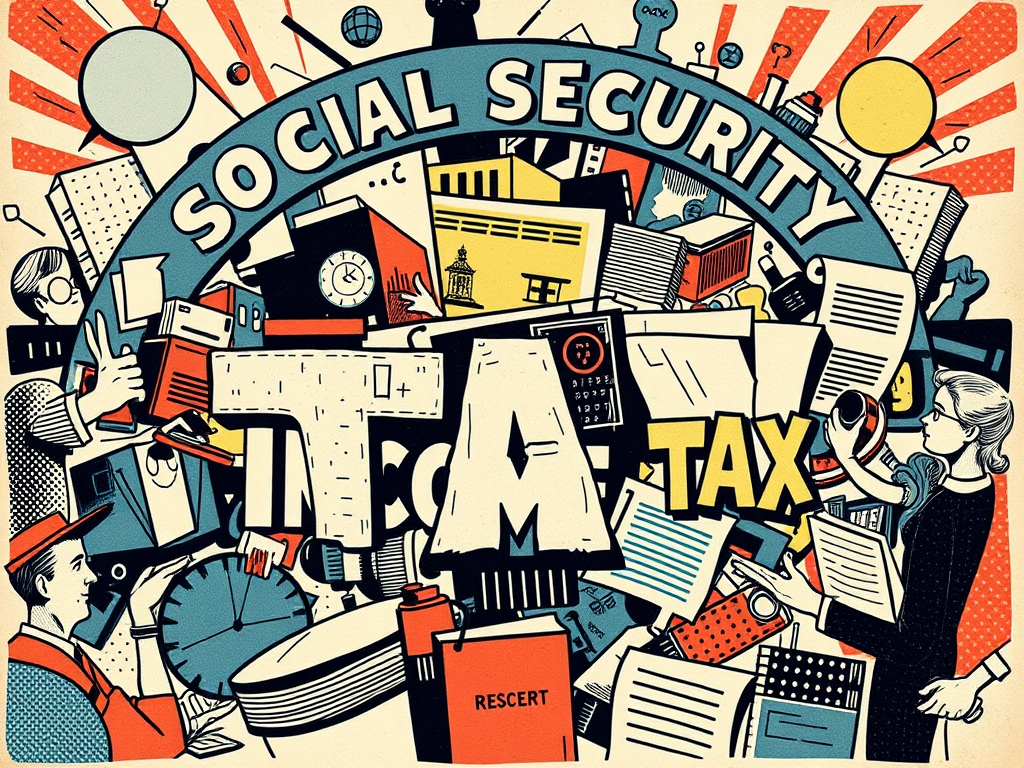
Can You Sell Your Investment Property and Keep the Golden Visa?
Reading time: 15 minutes
Table of Contents
- Introduction
- Understanding Golden Visa Programs
- The Intersection of Real Estate and Golden Visas
- Economic Implications of Golden Visa Programs
- Case Study: Greece’s Golden Visa Program
- Legal Considerations When Selling Investment Property
- Impact on Residency Status
- Alternative Investment Options
- Future Outlook for Golden Visa Programs
- Conclusion
- FAQs
Introduction
As global economic landscapes shift and evolve, investment strategies must adapt accordingly. One increasingly popular avenue for international investors has been the acquisition of real estate through Golden Visa programs. These initiatives, offered by various countries, provide a pathway to residency or citizenship in exchange for significant investment, often in the form of property purchases. However, a critical question arises for many investors: Can you sell your investment property and still maintain your Golden Visa status?
This comprehensive analysis delves into the intricacies of Golden Visa programs, with a particular focus on their intersection with real estate markets. We’ll explore the economic implications, legal considerations, and potential impacts on residency status when investors contemplate selling their qualifying properties. By examining these factors, we aim to provide valuable insights for both current Golden Visa holders and prospective investors navigating this complex landscape.
Understanding Golden Visa Programs
Golden Visa programs, also known as investor visas or citizenship by investment schemes, have gained significant traction over the past decade. These programs offer a mutually beneficial arrangement: countries attract foreign capital to stimulate their economies, while investors gain residency rights and potential pathways to citizenship in desirable locations.
The basic premise is straightforward: in exchange for a substantial investment in the host country, typically through real estate purchases, government bonds, or business ventures, investors receive residency permits. These permits often come with additional benefits such as visa-free travel within the Schengen Area for European programs.
Key Features of Golden Visa Programs
- Minimum investment thresholds (often ranging from €250,000 to €2 million)
- Residency permits for the investor and immediate family members
- Potential pathways to permanent residency or citizenship
- Minimal physical presence requirements in many cases
- Access to healthcare, education, and other social benefits
While the specifics vary by country, most Golden Visa programs share these core elements. Understanding these foundational aspects is crucial for investors considering their options and obligations when it comes to property investments tied to their visas.
The Intersection of Real Estate and Golden Visas
Real estate investment has become a cornerstone of many Golden Visa programs, creating a unique symbiosis between property markets and immigration policies. This intersection has profound implications for both local economies and international investors.
For countries offering Golden Visas, real estate-linked programs serve multiple purposes:
- Stimulating the property market, especially in areas that may have experienced stagnation
- Attracting foreign capital to boost economic growth
- Encouraging urban development and regeneration projects
- Creating jobs in construction and related industries
From an investor’s perspective, real estate offers tangible assets with potential for appreciation, rental income, and personal use. Moreover, property investments often come with lower risk profiles compared to other qualifying investments like venture capital or government bonds.
However, this intertwining of real estate and residency rights creates complex scenarios when investors consider divesting their properties. The question of whether one can buy house in greece or other Golden Visa countries, then sell it while retaining visa benefits, becomes particularly pertinent.
Economic Implications of Golden Visa Programs
The economic impact of Golden Visa programs extends far beyond individual property transactions. These initiatives can significantly influence national economies, shaping everything from real estate markets to foreign direct investment (FDI) flows.
Macroeconomic Effects
At a macroeconomic level, Golden Visa programs can:
- Boost GDP through increased foreign investment
- Improve balance of payments by attracting foreign currency
- Create jobs across various sectors, particularly in real estate and services
- Enhance tax revenues from property transactions and ongoing wealth management
However, these programs are not without potential drawbacks. Critics argue that they can lead to:
- Inflated property prices, potentially pricing out local buyers
- Increased wealth inequality
- Risk of money laundering and other financial crimes
- Overreliance on foreign investment in certain sectors
Real Estate Market Dynamics
The impact on real estate markets is particularly pronounced. Golden Visa programs can create distinct sub-markets within broader property landscapes. For instance:
- Luxury properties in prime locations often see increased demand
- New development projects may cater specifically to foreign investors
- Rental markets can be affected as investors seek to generate income from their properties
Understanding these economic implications is crucial for investors considering the long-term viability and potential exit strategies for their Golden Visa investments.
Case Study: Greece’s Golden Visa Program
Greece’s Golden Visa program serves as an illustrative example of how these schemes operate and evolve. Launched in 2013 amid economic challenges, the program has become one of Europe’s most popular investor visa options.
Key Features of the Greek Golden Visa
- Minimum investment: €250,000 in real estate
- Five-year residency permit, renewable indefinitely
- Visa-free travel within the Schengen Area
- No minimum stay requirements
- Option to rent out the property
The program has had a significant impact on Greece’s property market, particularly in Athens and popular island destinations. Between 2013 and 2020, it’s estimated that the Golden Visa scheme brought in over €2 billion in real estate investments.
Recent Developments and Challenges
Greece has recently announced plans to increase the minimum investment threshold to €500,000 in certain high-demand areas, reflecting the program’s success and addressing concerns about market distortion. This change underscores the dynamic nature of Golden Visa policies and the need for investors to stay informed about potential regulatory shifts.
The Greek case also highlights some of the challenges faced by Golden Visa programs, including:
- Ensuring due diligence to prevent money laundering
- Balancing the needs of foreign investors with those of local residents
- Managing the impact on property prices and affordability
- Addressing concerns about the long-term economic benefits versus short-term gains
Legal Considerations When Selling Investment Property
For investors contemplating the sale of their Golden Visa-linked properties, navigating the legal landscape is crucial. The specific regulations vary by country, but several key considerations are typically involved:
Minimum Holding Periods
Many Golden Visa programs stipulate a minimum period during which the qualifying investment must be maintained. This can range from a few years to the entire duration of the residency permit. Selling before this period expires may jeopardize visa status.
Reinvestment Requirements
Some countries allow investors to sell their original property if they reinvest the proceeds in another qualifying asset. The specifics of such arrangements, including timelines and approved investment types, vary widely.
Reporting Obligations
Investors are typically required to report significant changes in their investments to immigration authorities. Failure to do so can result in penalties or loss of residency rights.
Tax Implications
Selling investment property can trigger various tax obligations, including capital gains tax, property transfer tax, and potential impacts on wealth tax calculations. These considerations can significantly affect the net proceeds from a sale.
Legal Representation
Given the complexity of these transactions, engaging legal counsel with expertise in both real estate and immigration law is highly advisable. This can help ensure compliance with all relevant regulations and protect the investor’s interests.
Impact on Residency Status
The core concern for many Golden Visa holders considering property sales is the potential impact on their residency status. This impact can vary significantly based on the specific program and individual circumstances.
Potential Scenarios
- Maintenance of Status: In some cases, selling the property after a specified period may not affect residency status, especially if the initial visa term has been completed.
- Requirement to Reinvest: As mentioned earlier, some programs allow for the sale of the original investment if the proceeds are reinvested in another qualifying asset within a certain timeframe.
- Loss of Status: In more stringent programs, selling the qualifying property can result in the immediate revocation of residency rights.
- Grace Periods: Some countries offer grace periods during which investors can sell and reinvest without risking their status.
Long-Term Residency and Citizenship Pathways
For investors aiming for long-term residency or citizenship, the implications of selling can be even more significant. Many Golden Visa programs offer pathways to permanent residency or citizenship after a certain period, often contingent on maintaining the original investment. Selling prematurely could reset or terminate this process.
Alternative Investment Options
For investors looking to maintain their Golden Visa status while diversifying their portfolios, several alternative investment options may be available, depending on the specific country’s program:
1. Commercial Real Estate
Some programs allow investments in commercial properties, which can offer different risk-return profiles compared to residential real estate.
2. Government Bonds
Certain countries accept investments in government bonds as qualifying assets for Golden Visas, providing a potentially lower-risk option.
3. Business Investments
Creating jobs or investing in local businesses can qualify for Golden Visa status in some jurisdictions, offering more direct engagement with the local economy.
4. Investment Funds
Some countries have approved investment funds that qualify for Golden Visa programs, allowing for more diversified and professionally managed investments.
5. Philanthropic Donations
In rare cases, substantial donations to approved causes or institutions may qualify for residency rights, though this is less common than other investment types.
These alternatives can provide flexibility for investors looking to adjust their portfolios while maintaining their visa status. However, it’s crucial to verify that any alternative investment meets the specific requirements of the relevant Golden Visa program.
Future Outlook for Golden Visa Programs
As we look to the future, several trends and factors are likely to shape the landscape of Golden Visa programs:
Regulatory Tightening
In response to concerns about money laundering and the impact on local housing markets, many countries are implementing stricter regulations and due diligence processes. This trend is likely to continue, potentially making Golden Visa programs more selective and compliance-heavy.
Evolving Investment Criteria
There’s a growing shift towards favoring investments that create jobs or contribute to specific economic sectors, rather than passive real estate investments. This could lead to more diverse investment options and potentially higher thresholds.
Geopolitical Factors
Global events, such as Brexit or changes in international relations, can significantly impact the attractiveness and viability of certain Golden Visa programs. Investors will need to stay attuned to these macro-level shifts.
Environmental and Social Governance (ESG) Considerations
As ESG factors become increasingly important in investment decisions, Golden Visa programs may evolve to incorporate sustainability criteria or favor investments in green technologies and sustainable development.
Digital Nomad Visas
The rise of remote work is leading some countries to introduce digital nomad visas, which could compete with or complement traditional Golden Visa programs, potentially reshaping the landscape of investment-based immigration.
Conclusion
The question of whether one can sell their investment property and keep their Golden Visa status is complex and highly dependent on the specific program and individual circumstances. While some countries offer flexibility in this regard, others maintain strict requirements for maintaining investments throughout the visa period.
Key takeaways for investors include:
- Thoroughly research the specific rules and regulations of the chosen Golden Visa program
- Consider long-term objectives beyond just obtaining residency
- Stay informed about potential regulatory changes that could affect investment requirements
- Explore alternative investment options that may offer more flexibility
- Engage legal and financial experts to navigate the complexities of these programs
As Golden Visa programs continue to evolve, they remain a powerful tool for investors seeking to diversify their portfolios and secure residency rights in desirable locations. However, the landscape is becoming increasingly nuanced, requiring careful consideration and strategic planning to maximize the benefits while navigating potential pitfalls.
Ultimately, the decision to sell an investment property tied to a Golden Visa should be made with a comprehensive understanding of the immediate and long-term implications, always keeping in mind the primary goals that led to the initial investment.
FAQs
-
Q: Can I rent out my Golden Visa property and still maintain my residency status?
A: In many cases, yes. Most Golden Visa programs allow investors to rent out their properties, as long as the property remains in their ownership. However, it’s essential to check the specific rules of your chosen program, as some may have restrictions on rental activities.
-
Q: What happens if the value of my property decreases below the initial investment threshold?
A: Generally, fluctuations in property value do not affect your visa status once it has been granted. The important factor is typically the initial investment amount at the time of purchase. However, if you’re looking to renew your visa or apply for permanent residency, some programs may reassess the property’s value.
-
Q: Are there any Golden Visa programs that don’t require real estate investment?
A: Yes, several countries offer Golden Visa programs with non-real estate investment options. These can include government bonds, business investments, or deposits in local banks. Examples include Portugal’s options for capital transfer or job creation, and Malta’s government bond investment option.
-
Q: How often do Golden Visa programs change their regulations?
A: The frequency of changes varies by country, but it’s not uncommon for programs to be adjusted every few years. These changes can affect minimum investment amounts, types of qualifying investments, or additional requirements. It’s crucial for investors to stay informed about potential changes and how they might impact their status.
-
Q: Can family members be included in a Golden Visa application, and what happens if the main applicant sells the property?
A: Most Golden Visa programs allow the inclusion of immediate family members (spouse and dependent children) in the application. If the main applicant sells the property, the impact on family members’ status typically mirrors that of the primary investor. However, some countries may have provisions allowing family members to maintain their status under certain conditions, even if the main applicant’s status changes.

Article reviewed by Sophia Georgiadou, Global Expansion Consultant | Market Entry Strategist | Breaking Into Emerging Markets with Tailored Localization Plans, on May 15, 2025




